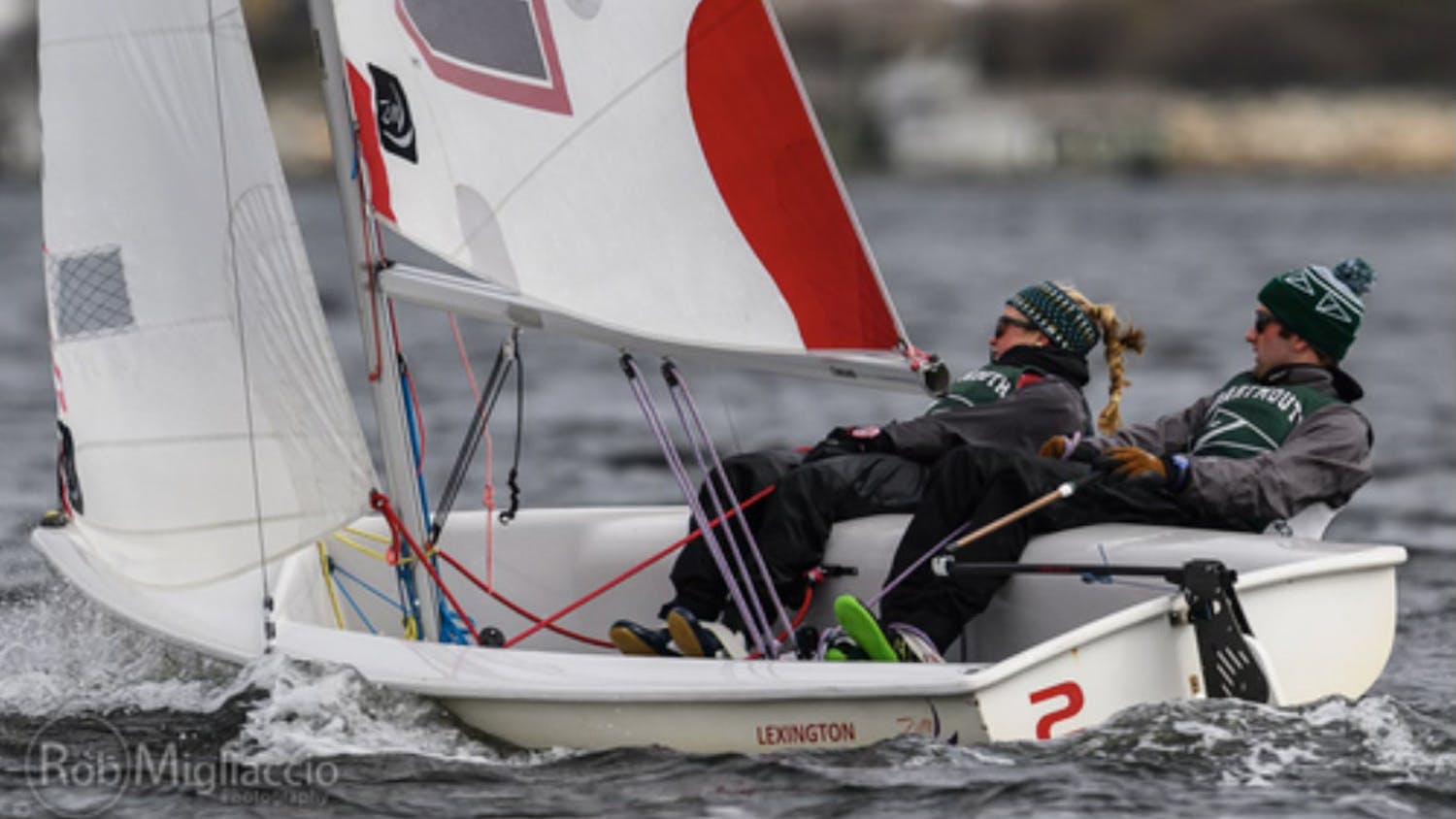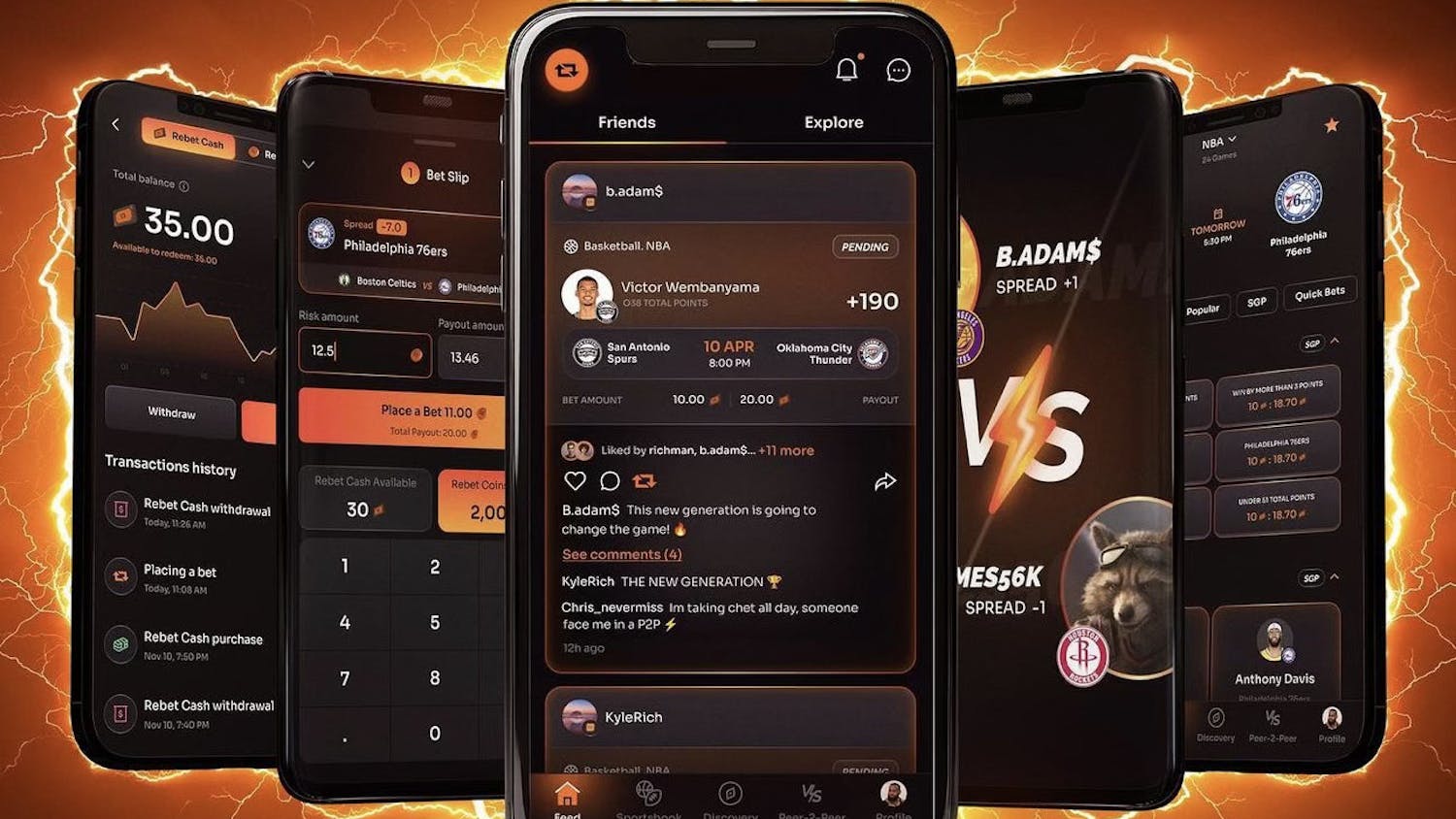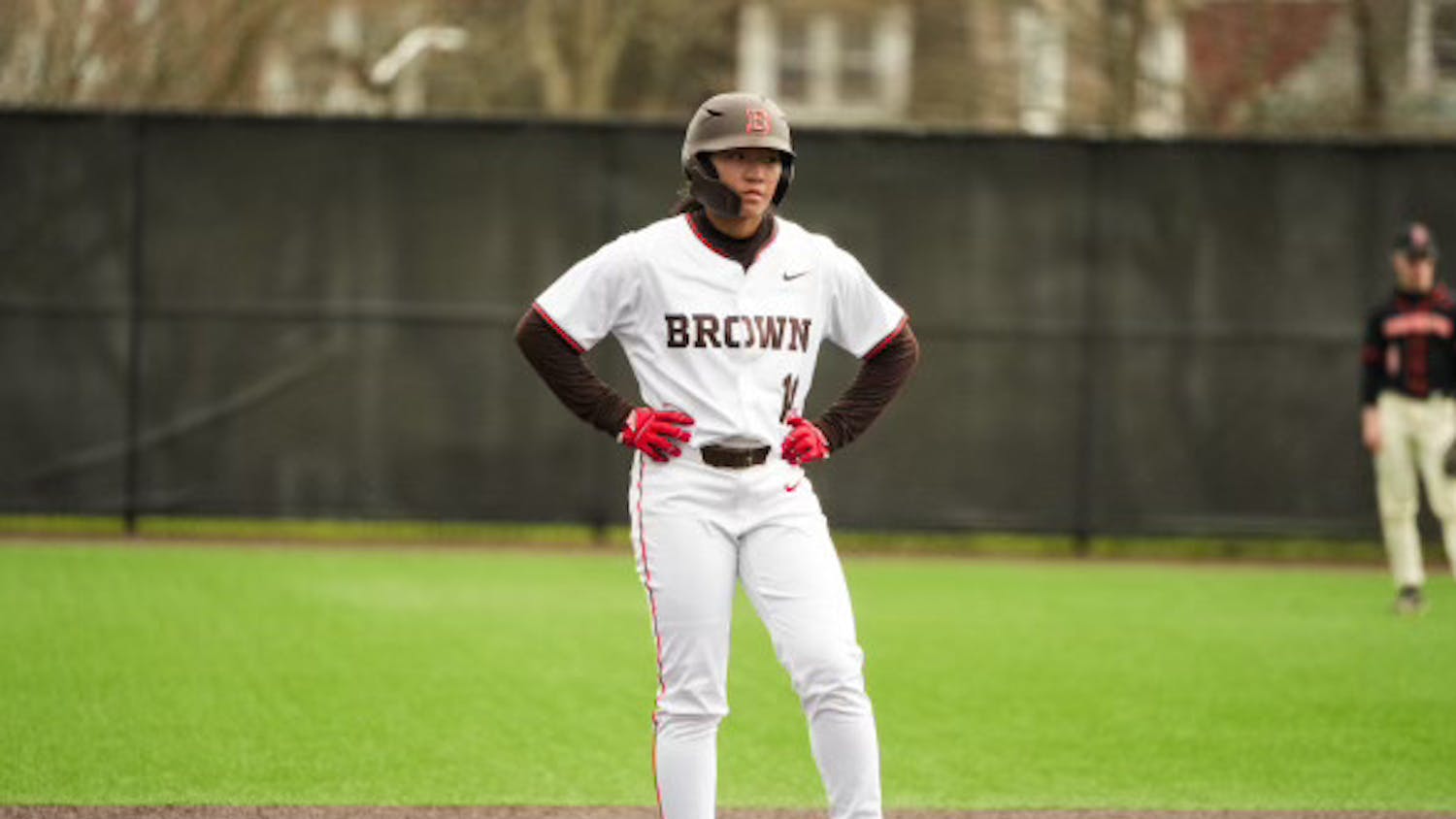Not too high, not too low. You hear that phrase in interview after interview, from player after player. What it means, in not so many words, is that a team is looking for consistency — ways to manage big victories so they don’t start pushing the boundaries of their own play while handling tough losses so they can take the ice with enough confidence to avoid getting stuck in a rut. After this weekend, which began with an exciting late-game 3-2 win over Cornell University and ended in a devastating 0-3 loss to Colgate University, not too high, not too low is what men’s ice hockey is counting on as the team nears the end of the regular season.
Dartmouth (12-9-4, 9-7-2) came into play this weekend off one of its hottest stretches of hockey all season, riding the wave of a five-game winning streak and six games without a loss. True to its recent style of play, the Big Green came out hard and scored the first two goals of the game against Cornell — the first at the hands of Brad Schierhorn ’16 just 19 seconds into play. Jesse Beamish ’15 was eventually credited with the next goal after the puck bounced off several players before crossing the crease. Two goals for Cornell, the first of which came as Dartmouth tried to kill a five-on-three, tied the game 15 minutes in. For the next 37 minutes of play, the teams fought to a total stalemate. Competing for both Ivy League pride and better postseason seats, Dartmouth needed a goal in this game to secure the two points well within reach. Enter alternate captain Eric Neiley ’15.
Brandon McNally ’15, against the boards, pushed the centering pass to Rick Pinkston ’15 while Grant Opperman ’17 screened Cornell goaltender Mitch Gillam. Rather than taking the shot, Pinkston backhanded it to Neiley. In the circle, Neiley buried the puck in the back of the net, securing a singing sixth victory in a row for Dartmouth — its longest streak since Nov. 10, 2012. The game, Pinkston said, was one of the team’s “more complete games all season.”
“I was really happy, defensively,” he said. “There was maybe one minor breakdown in the defensive zone, but other than that I thought it was a solid game from start to finish.”
Offensively, Dartmouth knew they had their work cut out for them, going up against the No. 3 overall defense and No. 2 penalty killers in the NCAA. Dartmouth had four power play opportunities on Friday night, none of which they capitalized on. While it’s understandable that the men would struggle against the strength of Cornell’s penalty killing units, the power play continues to be a growth opportunity for the Big Green, who is currently scoring on about half as many power plays as the top teams in the country overall. The team’s thought process against Cornell, who kills over 90 percent of their penalties, Neiley said, was to try and draw out the Big Red.
“They had a good penalty kill obviously,” he said. “They just sat back. We probably should have been coming up with speed and been trying to get behind them and beat them to pucks instead of trying to enter the zone with possession.”
As the team took the ice on Saturday, it was clear from the start that something was different. The team opened up with a somewhat lethargic first period, forfeiting the first goal of the game to Colgate after an unsuccessful penalty kill. The second period opened up with more of the same. A Dartmouth opportunity was derailed — quite literally — by a Colgate player who intentionally knocked off his own goal. The officials did not call the penalty.
The growing frustrations on the ice began to manifest physically, kicked off by two aggressive, but not punishable, hits by Nick Bligh ’16, one of which knocked over Colgate’s goaltender. McNally was the next to go down after a crushing blow to a Colgate player near center ice. The officials ruled the hit as direct contact to the head — which warrants a major penalty and game misconduct and sent McNally off the ice for the duration of the game. Later review of the play in the press box made it seem as if McNally just went shoulder-to-shoulder with the player, though his elbow and stick were in the air at the end, giving the look of an intentionally dangerous hit.
A team penalty for too many men on the ice put Dartmouth killing a five-on-three when Pinkston and a Colgate player both got nabbed for roughing, crowding Dartmouth’s penalty box with three players at once. When all was said and done, the Big Green killed about six straight minutes of penalties, aided and abetted by Chuck Grant ’16 in the goal who made an incredible glove save before punctuating the penalty kill by smothering the shot. The team spent almost half the second period working at a disadvantage with a missing player, though they only attempted two fewer shots than Colgate during the 20 minutes.
What could have been a critical momentum-building moment for Dartmouth ended up as more of the same in the third period, as Colgate ultimately netted two more goals. Geoff Ferguson ’16 took a game misconduct for unsportsmanlike conduct, and Dartmouth finished the game without a goal. The team accumulated 35 total penalty minutes taken on eight penalties.
After the game on Saturday, head coach Bob Gaudet said the team was making “no excuses” and that Colgate played “a great game.”
It would be difficult to say Dartmouth’s fan base was pleased with the performance on Saturday night — the team has proven itself more than capable of playing a better game than the one it played against Colgate. Had the game been called differently, it’s still not clear that Dartmouth would have emerged with a different outcome. The team took plenty of bad penalties, engaged in what was likely more gratuitous scrumming than necessary. Emotions were high on the ice, and when things begin rolling downhill for the Big Green, they really start rolling downhill.
This isn’t the first time we’ve seen this phenomenon for Dartmouth — against St. Lawrence University, the Big Green served 25 minutes on seven penalties. St. Lawrence took 27 minutes on eight penalties that night, and now the two are set to face off again this Saturday at St. Lawrence at 7 p.m. Before reuniting with St. Lawrence, however, the Big Green will travel to Clarkson University on Friday to begin play at 7 p.m.
While Dartmouth is only two points away from third place in the ECAC, they’re also two points away from eighth. The race is tight. If the team can take this weekend and put it away, store it somewhere it won’t affect them going forward, there really is little reason to be concerned for the Big Green who have proven themselves — when they properly partition their energy — to be competitive in the NCAA. Not too high, not too low.



